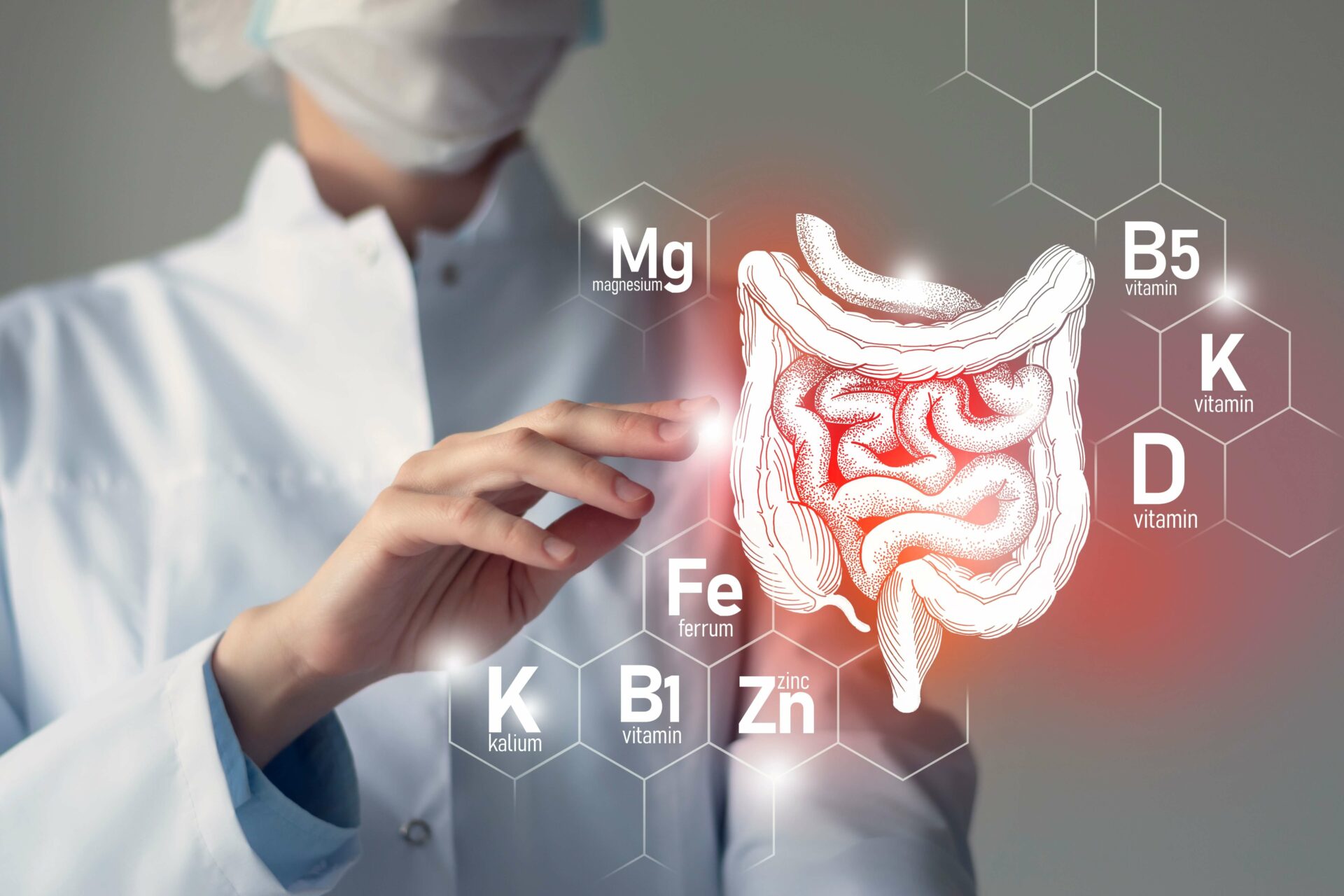Metabolism is a term most people have heard of, but rarely do we take the time to really understand what it is and how it works. It is an incredibly complex process involving multiple organs and processes that all work together to keep our bodies functioning optimally. Let's dive deeper into metabolism and examine how it works, what organs are involved, and what metabolic diseases can result from an imbalance.

Your metabolism stimulation blend
With natural methods such as the individual spagyric sprays from Zimply Natural, complaints can be treated and sustainably alleviated.
What is the metabolism?
Metabolism is a complex biological process involving chemical reactions in the human body that control everything from fuel consumption to growth and repair. It plays a critical role in maintaining the living cells and tissues that are responsible for the daily functioning of the human body. Metabolism takes place in cells through regulated chemical processes involved in energy production, chemical transformation, and protein synthesis.
Without metabolism, our body would not be able to grow or function properly because there would be no available source of energy. A healthy metabolism is therefore the key to optimal functioning of the body.
Metabolism does not mean digestion
It is important to understand the differences between digestion and metabolism. Digestion is the process of breaking down food into absorbable substances, such as enzymes that break down carbohydrates and lipases for fats. Metabolism is a more general term that describes what happens to the energy produced during digestion. It encompasses a variety of chemical reactions in an organism that are responsible for regulating body temperature, building new proteins and molecules, and various other functions that keep the organism alive. Ultimately, digestion helps us get the energy we need, but metabolism helps us convert that energy into something we can use in our bodies.
Metabolic processes

Metabolic processes are a series of chemical reactions that occur in living organisms and are important for survival. In these reactions, molecules are broken down to produce energy or used to produce other molecules. In addition, metabolic processes play an important role in maintaining homeostasis, which is necessary for the normal functioning of organs and systems in the body. There are two types of metabolic processes: catabolism, in which complex molecules are broken down into simple compounds, and anabolism, in which small molecule parts are assembled into larger ones.
Catabolism
Catabolism is a metabolic pathway that breaks down large molecules, primarily organic molecules such as carbohydrates, lipids and proteins, into smaller molecules and releases energy in the form of ATP. This energy from catabolic pathways is used by organisms to build new cellular components during anabolism and also for other purposes such as locomotion. The catabolic process involves several steps, including enzymes that break down complex molecules into simpler molecules, small molecules that are further broken down in the presence of oxygen by oxidative processes or in the absence of oxygen by fermentative processes. Oxidation-reduction reactions may also occur, altering the oxidation number of certain atoms. Ultimately, these small molecules are removed from metabolic pathways after they have served their purpose and are reused elsewhere in the cell.
Anabolism
The term anabolism refers to essential metabolic processes in living cells that require energy, such as the building of biomass molecules like proteins and carbohydrates from simpler units. It can also refer to the building of tissue mass, often through exercise or a diet that includes certain nutritional supplements. Broadly speaking, anabolic reactions are those in which energy is absorbed from the environment to form complex molecules and drive cell development. Simply put, anabolism is the process of synthesizing new compounds with higher energy content than the original compounds. This energy is necessary for many biochemical processes and allows cells to grow and thrive despite their limited supply of raw materials. Anabolic reactions occur both inside and outside our cells, making them an integral part of life and enabling us to function optimally.
Which organs are involved in metabolism?
Metabolic processes take place throughout the body, but are particularly important for certain organs such as the liver, pancreas, small intestine, stomach, heart and kidneys. These organs are responsible for breaking down nutrients such as carbohydrates and fats so that they can be absorbed by cells throughout the body. They also play a key role in regulating blood sugar levels and maintaining a normal pH in our bodies.
The liver is especially important for metabolizing food because it detoxifies our bloodstream by breaking down toxins from drugs, alcohol, or environmental pollutants that enter our bodies through food or drink. The pancreas secretes insulin, which helps regulate blood sugar levels, while the small intestine absorbs nutrients from digested food so they can be used by cells throughout the body. The stomach breaks down food using acids, while the kidneys remove waste products from the bloodstream and excrete them through the urine.
Metabolic diseases
Metabolic diseases are caused by a variety of underlying conditions that lead to malfunctions in the body's processes. They affect metabolism, the way the body converts food into energy, and can range from minor to life-threatening. Causes can include genetic mutations or deficiencies in certain enzymes, hormones or proteins. Some metabolic diseases are inherited, while others are acquired through lifestyle factors such as poor diet or lack of exercise. Treatment of metabolic diseases depends on the disease and may consist of dietary changes, taking nutrients and hormones, medications, and lifestyle changes. Examples of metabolic diseases include type 1 diabetes mellitus, lysosomal storage diseases, mitochondrial disorders, peroxisomal disorders, hereditary fructose intolerance, homocystinuria (a form of hyperhomocysteinemia), and phenylketonuria (PKU). With early diagnosis and proper treatment, these disorders can improve the quality of life of those affected.
Stimulate metabolism

If you're looking for ways to boost your metabolism and give your body the energy it needs to function optimally, there are some simple steps you can take. First, choose nutrient-rich foods like lean sources of protein, complex carbohydrates from whole grains, and healthy fats like olive oil. Plenty of fiber-rich vegetables will help you stay full so you don't overeat. It's also important to get regular exercise; aim for at least 150 minutes or two and a half hours a week. Finally, drink plenty of water between meals and throughout the day. If you follow these tips, your metabolism will be boosted in no time!
Metabolism is a highly complex system in our bodies involving various organs that work together to break down nutrients for energy production or storage and regulate various biochemical processes throughout our system. While it is possible for metabolic imbalances to lead to serious health problems, understanding how metabolism works can help prevent many diseases before they occur or worsen over time. With a balanced diet rich in whole foods and regular exercise, you can help keep the metabolism in your body healthy!
Pure herbal medicine to boost your metabolism - Zimply Natural
With Zimply Natural, we are the antidote to painkillers, sleeping pills, and standard medications. We are your medicine! For our blends we use the centuries-old natural healing method of the Spaygrik back. Spagyric combines the herbal active ingredients and phytotherapeutic elements of medicinal plants, the mineral salt qualities, as well as the subtle information of medicinal plants and the energetic potential of Bach flowers.








